Yoni Wolf on the new album from his indie/alt hip-hop band WHY?: "There’s a real soberness to the mix process - though I mix when I’m stoned a lot of the time"
Tapping ever-deeper into his neurosis, Yoni Wolf tells us about his eighth WHY? album, The Well I Fell Into
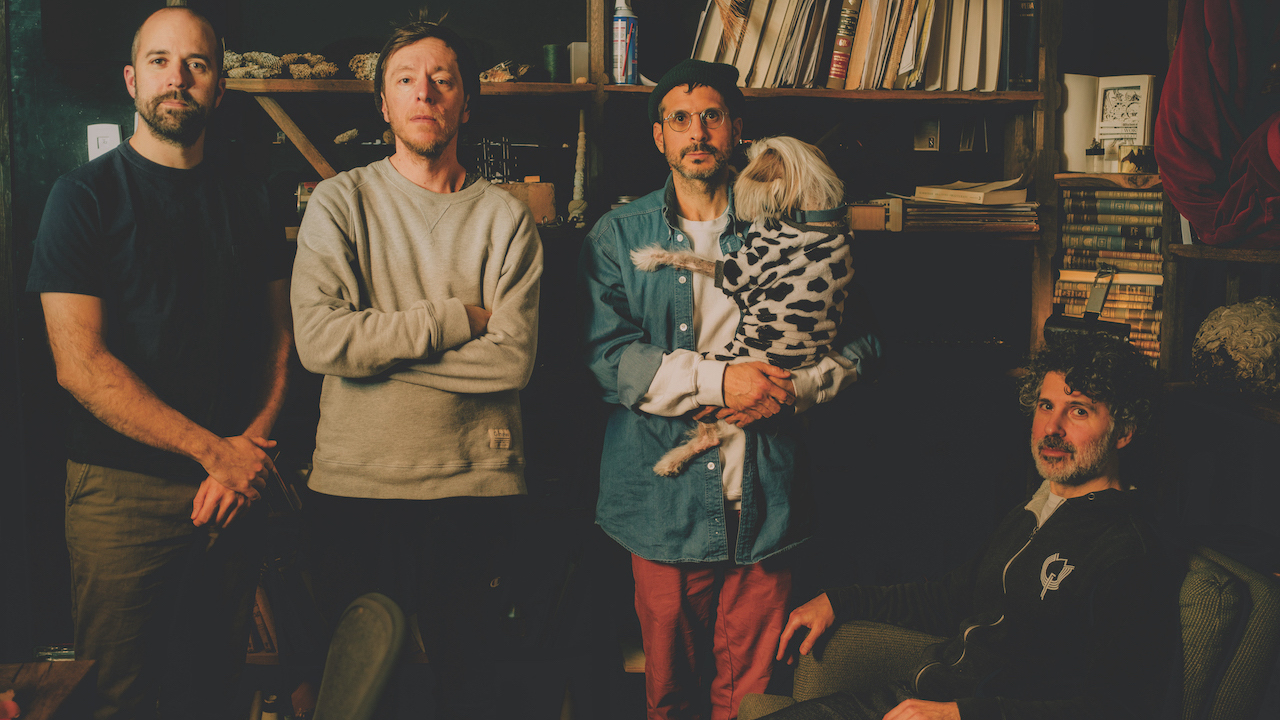
Experimental hip hop trio Clouddead is now a long distant memory for former vocalist Yoni Wolf. When the band split after its final album, Ten (2004), Wolf immediately went solo, fronting the alternative indie rock band WHY? alongside brother and production partner Josiah Wolf and multi-instrumentalists Doug McDiarmid and Matt Meldon.
20 years later and WHY? have just released their eighth album, with Wolf picking at the scabs of a devastating relationship breakup in search of fertile creative ground. Known for his idiosyncratic approach to songwriting and blunt emotional openness, The Well I Fell Into, ironically, finds WHY? at their most poignant, intentional and commercially aware.
It’s been 20 years since the Clouddead project ended. Looking back, did that moment represent a moment of fear or opportunity for you?
“More so than the other guys, I was probably the one who was pulling away the most so I was very excited to jump into a more concentrated solo songwriting project. I’d started to key into some new ways of thinking about songwriting. I loved Clouddead, especially the second album, which I think is hilarious, but it’s an absurdist commentary on society whereas I was more interested in what WHY? ended up becoming, which was more of a personal pop songwriting thing. Looking back, I still have a great love for the Clouddead stuff and those guys.”
Does a link still exist between that project and your solo work or have you undertaken a complete reinvention?
“A through line can probably be drawn in some way, but you have to take into account what the other two guys brought to the table. On certain Clouddead songs you can see glimpses of where I was about to go, but the experience of working in that group and a couple of other early collaborations I did have certainly influenced my trajectory. Meeting Adam Drucker, specifically, was probably what pushed me towards taking music-making and recording seriously.”
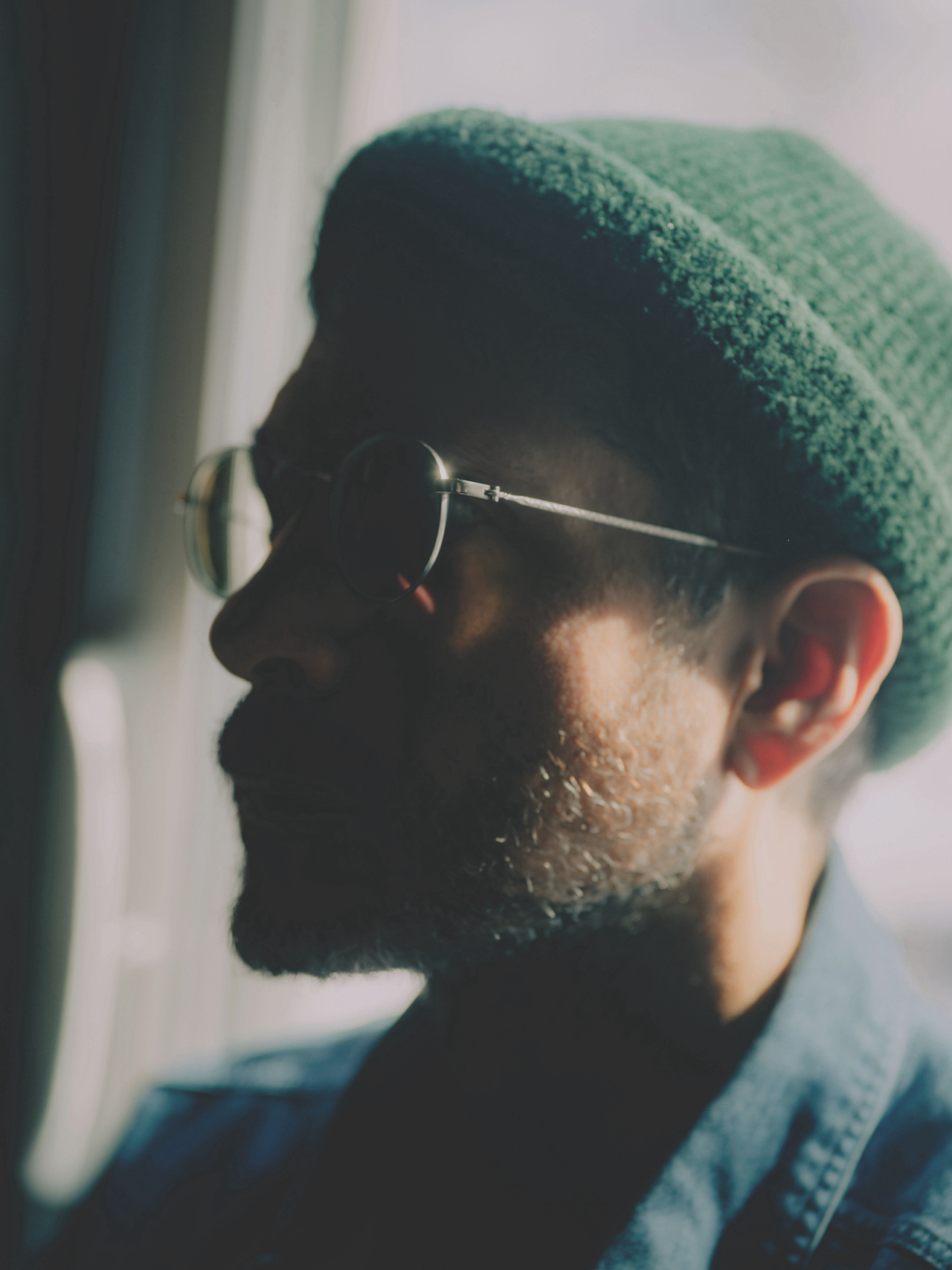
One element of WHY?’s production aesthetic is the unexpected, with wildly different tempos, instruments and lyrical narratives from track to track. Is that something you’re conscious of when writing?
Want all the hottest music and gear news, reviews, deals, features and more, direct to your inbox? Sign up here.
“At many points in the past I’ve been interested in little surprises in production and arrangement and emotional juxtapositions to elicit that transition of sounds and feelings, just because I think that’s what life is all about. You could create a cohesive album that leans into or fixates on one feeling, but I’ve tended to think of album making as a way to evaluate a period of time. Usually that’s between one and five years, encompassing all the different things that have taken place in my life and the world. Finding a way to distil that into an album’s worth of work is a gambit that makes sense to me.”
Obviously, pop music’s been around since the 1950s. Are you conscious of everything having been done before and therefore trying to find new ways to approach writing songs?
“Can you imagine what it was like being a songwriter in the ‘50s and ‘60s and being able to reinvent the whole thing? It must have been amazing being an engineer or one of The Beatles creating A Day in the Life. Coming up with new ways to approach songwriting is still done, but it’s kind of like the dream and I think why a lot of songwriters and producers do it – they want to find a sound, idea, feeling or word that no one else has really touched upon.”
When was the last time you heard something that really stood out?
“I listen to the radio in the car and every five or ten years something will come on the air and I’ll think, what the fuck is that? I remember the first time I heard Kendrick Lamar on hip-hop radio and thought, whoa, this sounds like some weird underground thing, but it’s pop. That’s just one example, but creating something that feels fresh and new is definitely the goal.
“It’s hard because so much has been done and the technology allows you to do pretty much anything. There was a time when you needed to make music in real-time using tape samples and have eight hands on a mixing console, but now you can spend months mixing a production and create something that sounds way more complicated.”
Where do you think modern technology is leading us?
“It’s a good question but enter AI, right? I’m not a psychic and don’t know what the future’s going to bring, but it’s going to be interesting, or not interesting at all if everything gets homogenised. Technology will always play a role. I mean, we’re still fascinated by 808 drums and the technologies that came out in the ‘80s.”
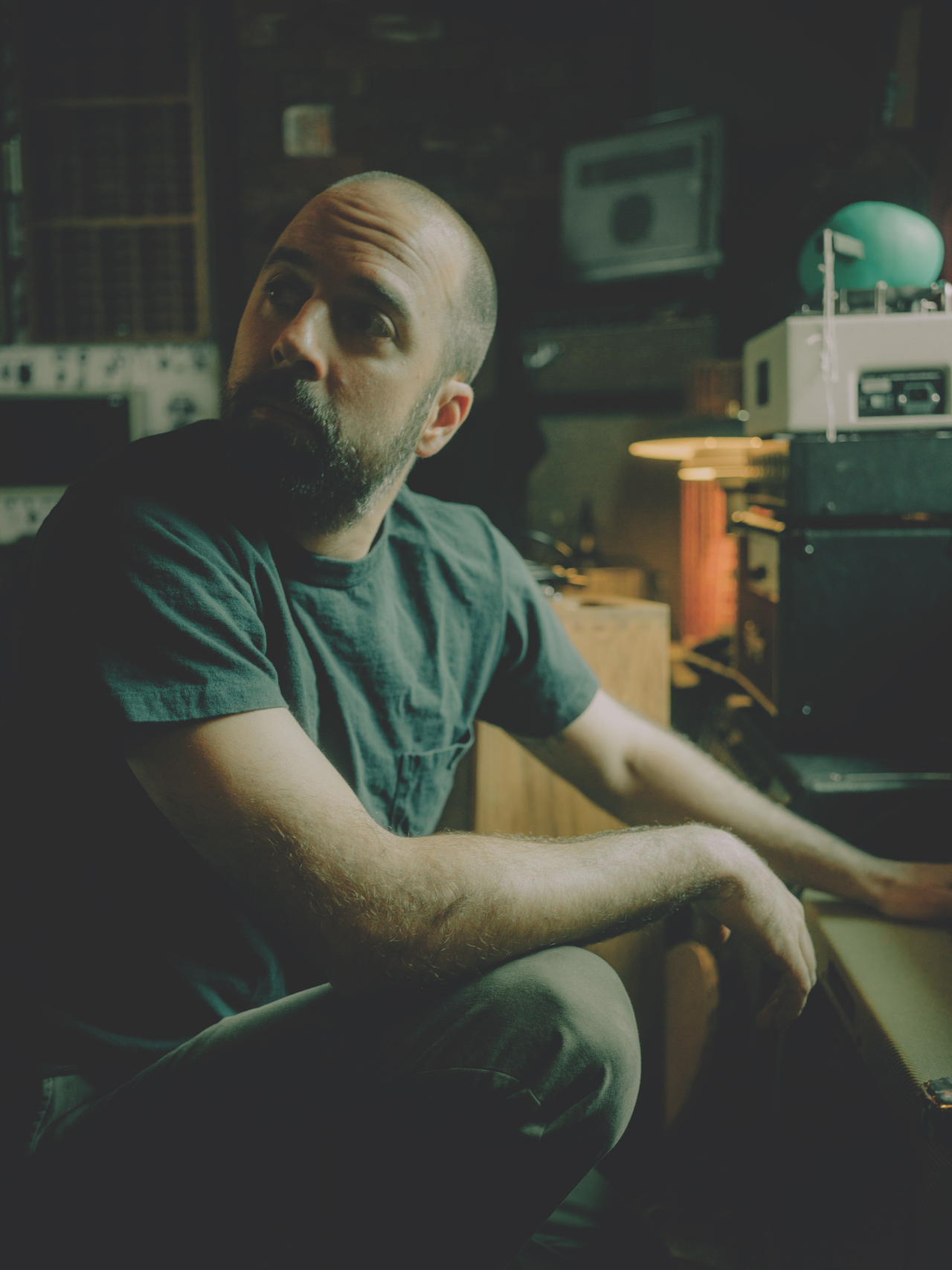
We have to ask about your 2013 EP, The Golden Tickets. To what extent did you ‘internet stalk’ fans for the purpose of creating tracks on that EP?
“To a great extent; I’d sometimes call a loved one or find their significant other’s social media page, contact them and do a little interview. It was a silly project, but it acted as a respite from my heavy songwriting. We actually wrote a whole bunch of stuff on the road in 2013 and I recently found that a lot of it was still sitting around on an old hard drive. I finally mixed those tracks last year, so we’re actually going to release another set of songs recorded around that time.”
Something changed on the album AOKOHIO; you went from writing three or four-minute songs to 30-second or 2-minute arrangements. What precipitated that?
“That was a throwback to earlier experiments, like the album Reaching Quiet and some of the Clouddead 10”s where we thought of music less in the pop song form and more about what we called ‘chunks’. A chunk could be a six or seven-minute piece of music that might include three or four songs jammed together. It became a movement of music – not in the classical form, but a jagged, jammed-up process of throwing different pop ideas together. It highlighted our more experimental approach to making a pop album, which probably wasn’t for everyone but I can listen back to it now and still think it’s cool.”
Why self-release your eighth WHY? album, particularly as labels never seem to have restricted you in any way?
“It just feels like a natural progression with the internet. I don’t know if I’d have had the courage to start my own label had I not been around music my whole adult life, and it’s a lot of work, but so far so good. You can have a label and put up gobs of money to promote your work, but if you have the understanding and the cash then it’s better to do it yourself. Today, music doesn’t have to be gate kept and you can just make your own shit, but even in the Anticon [record label of which Wolf was a co-founder] days there was someone managing the label. The owners acted more as A&Rs and we voted on what we wanted to release.”
The Well I Fell Into seems to take a more traditional, song-based approach…
This is the fourth time that we recorded at an external location. We call it our destination wedding method of recording
“Over the past few years I’ve been more interested in creating special three-minute moments that are a little more in the traditional pop writing format and seeing what I can do with that. It’s about taking an idea and making sure it has a beginning, middle and an end that takes you somewhere and tells the story without relying on the song next to it.
“There is a story that’s continuous throughout The Well I Fell Into, and the songs were chosen because of that, but I was also interested in making sure that each song sat on its own in a good way. Every time you write a song it’s a mystery or puzzle that you have to figure out how to solve, but I’m a big crossword guy so I kind of enjoy that sort of stuff [laughs].”
Tell us about the Artist Enabler Club, why you decided to start it and how it informs your songwriting process?
“The Artist Enabler Club was an opportunity I was given by the label I previously worked with, Joyful Noise. It was almost like a residency – Lou Barlow from Sebadoh had stopped doing it just before me and so the label owner asked if I wanted to be next in line. It’s basically a project where I release one demo every month and sell it as a lathe cut before parlaying that into a Substack. The demo versions are just me messing around from a small studio in my house, but the idea is that I’m releasing demos of my freshest work every month for people who really want to hear every aspect of my work.
“Honestly, out of all the stuff I do, this gives me the most joy as there’s nothing like the feeling of writing a song that’s fresh and new and putting that idea out into the world. A lot of those songs go on to turn into WHY? album tracks, albeit usually in a new form.”
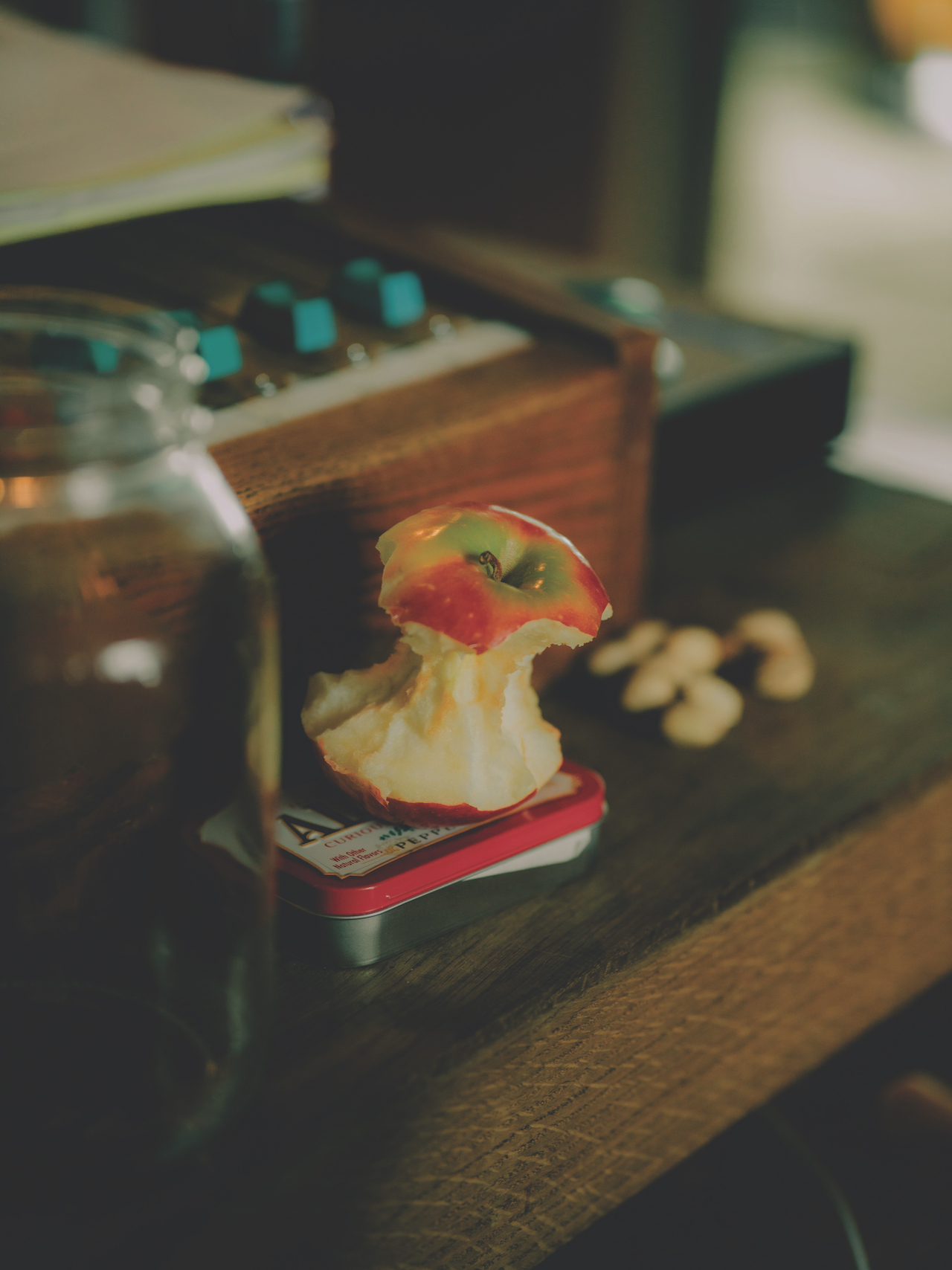
The title, The Well I Fell Into, suggests lack of control or a sense of helplessness…
“It’s about a period of my life where I was lost and everything got a bit dark and confusing. I was basically mining something post-relationship and coming to terms with that loss. Whether I’m working with melody or rhythm, I’m trying to create a sonic landscape that allows me to be abstract or impressionistic with the lyric writing.”
Do you believe that a songwriter needs to suffer to keep the creative muse burning?
“It’s kind of difficult to explain some of that stuff in this type of conversation and I don’t know whether it’s important for me to have all these anxieties to write about, but I would gladly find out and take my happiness over songwriting any day of the week.
“Some of these unsure feelings do help to fuel it and bring clarity, and I think that feeling is what most songwriters are aiming for. It’s not a true catharsis in that it pulls something out of you that you never have to think about again because the anxiety never ends, but the process is just something you do to stave off entropy, or pure insanity, before moving on to new work.”
Tell us about the track When We Do the Dance, which is full of slowed down vocals, strings, field recordings and lyrics about bagpipes?
“That’s the only song on the album that started as a demo and then we actually used the demo and recorded stuff on top of it. In terms of the field recordings, there’s some personal stuff from voice memos and my uncle who passed away many years ago. He had a public-access-type radio show and I have all these tapes of him so I used some of that.
“I used pitched down vocals for no other reason than it sounded cool, mixed well with the background environment and sounds like a different character singing that’s not exactly me. The song itself is really about destiny, love and how finding your personal mate is written in the stars. That’s the idiotic way of putting it – how I say it in the song is probably the more intelligent way.”
What instruments do you tend to pick up to kick start the songwriting process?
“It varies from song to song and generally comes as a mystery, but I like to keep notes about titles or little song ideas. Sometimes I’ll write a whole verse and have a bunch of that stuff at my disposal, or if I’m ever messing around on piano or guitar and come up with an interesting-sounding chord progression or series of notes I’ll record that and use it as fodder.
“For me, songwriting is about curating material, finding ways of putting different things together and then editing and building and editing and building. Eventually you have an impulse to take a track in a certain direction, follow your nose and keep making small decisions until something is there. Any approach is fair game and whatever gets you there is what’s needed.”
You worked at Wisconsin’s Hive Studio. Do you find that a change of recording environment is necessary from project to project?
I’m not a psychic and don’t know what the future’s going to bring, but it’ll be interesting, or not interesting at all
“We all have studios at our houses, but this is the fourth time that we recorded at an external location. We call it our destination wedding method of recording. In this case, I had all these demos, played them to my brother and just decided to grab a handful of musicians and go somewhere where we could be 100% focused on the project. Recording live is the main reason. We can do that at home to some extent, but not in a legitimate way. We wanted to have four musicians and a vocal going at once, with our friend Brian Joseph at the recording helm and a dedicated recording engineer so that we don’t have to think about any of that technical stuff.”
Who else have you collaborated with on this record and for what purpose might you bring someone in?
“I don’t think of WHY? as being a set group of people; I think of it as a project where we do whatever’s necessary to make awesome recordings. The initial musicians were me, my brother Josiah, Doug McDiarmid and Andrew Brody. We made the ground tracks and pulled in all kinds of people to flesh them out, from string and horn players to singers that I like the sound of. To begin with we’ll have a very generic rock band recording made with Wurlitzer piano, drums, bass and guitar and then we’ll think, gosh, this verse could really use violins, so who do we know who can play violin really well? Let’s call Macie Stewart.
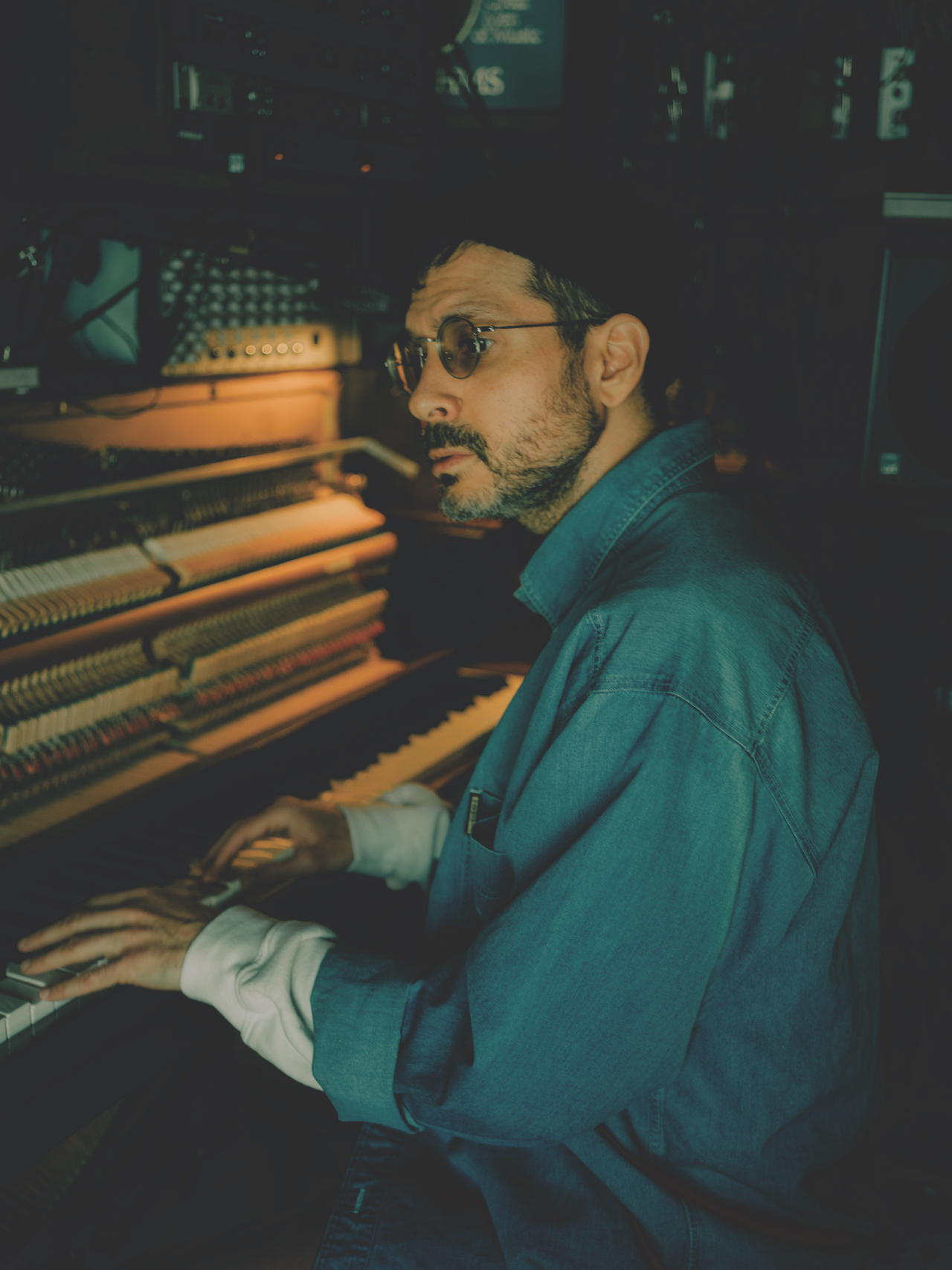
“Or we might need some sax on this outro, who do we know? I’ve got a working relationship with certain musicians where I don’t have to explain exactly what I want – I can just send them something knowing that what I get back will be really cool. I’ll still post-produce, pick through what they sent, chop things up and move things around, but I really trust their taste, aesthetic and playing. With vocalists, I like to have different voices other than mine so I’ll turn to a bunch of people I’ve used on previous albums.”
When recording in an environment like Hive, do you like to challenge yourself by picking up new gear and experimenting?
“The thing about Hive and Brian Joseph is that, although it’s the size of a little shed or barn, it’s chock full of awesome gear and random shit, like tubular bells. You’d never think of using that on a song, but as it’s there you end up doing so. That applies to outboard gear too, and it’s good to have a recording engineer who can put their colour on a sound. Drums, in particular, can sound a gazillion ways, so it’s great to have someone who can colour the sound how I like it before we reach mix down. We had access to every analogue synth you’ve ever heard of, plus stuff like the synth trumpet and old vintage gear that Brian keeps in good shape. He has a percussion instrument called an Ojibwe. It’s named after a Native American tribe and we used it on almost every track. It has such a beautiful drop sound that we couldn’t resist.”
What’s a synth trumpet?
“It’s from the 1970s, although it didn’t do that great in the marketplace. It’s blown like a trumpet and the finger keys are similar, but it sounds nothing like a real trumpet - it actually sounds like a really cool synth. I didn’t play it, I left that to Doug, but how hard you blow affects, not just the intensity of the sound, but the timbre, and I think it only has one oscillator that you can change.”
Once the album was completed at Hive did you take it away and do a lot of post-production?
“We spent about a month at Hive and then I spent another six months at home in post. None of the strings or horns were recorded in the studio, that was done remotely and Gia Margaret is a good example of knowing someone in advance who I wanted to use because she has such an interesting sound. She performed on two songs and played all the instruments, so I really did give her carte blanche to contribute whatever she wanted.
“For most of that time, I wasn’t really even at home. While we were at Hive I got a call saying the roof had been blown off my house and it had taken in a shit ton of water, so my house was out of commission for four out of those six months in post-production, but luckily my studio has a separate entrance and was untouched. I basically worked from there every day or used my laptop at whatever Airbnb I happened to be at.”
What do you mix on when you get back to the studio?
“Albums like Alopecia, Eskimo Snow and Mumps, Etc. were all recorded on two-inch tape and mixed in Pro Tools. Like I said before, The Beatles would have mixed in Pro Tools if they could have because we all use the technology from the time we’re living in. For me, Pro Tools is the best for mixing. My mix engineer actually lent me a bunch of software, so now I love using Soundtoys, Native Instruments and all the Waves stuff, but how I use it really depends on the sound and the song. I take every step of the process as far as you can hear it.”
How much of a difference is there between what you recorded at Hive and the final mix?
“If you were to hear the stuff that came out of the studio versus the album that you have now, they sound very different. If you’re going to record a whole album in a month, you need to be jacking through shit and getting hyped on the songs. You need to ask, does this have a feeling, because you can’t put that into a song later with EQ. When you’re in the studio, you’re having fun and not listening super close to stuff, and neither should you. It’s good to keep moving, especially if you don’t have a budget that lets you be in a studio for a year. There’s a real soberness to the mix process; though I mix when I’m stoned a lot of the time.”
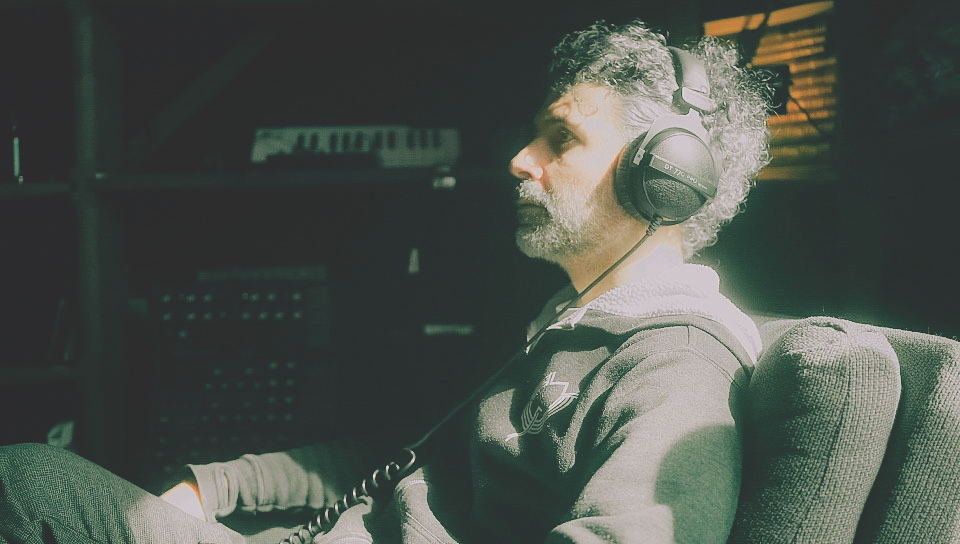
Is it a good idea to deliberately limit the initial studio time so you’re not overthinking things?
“I’d have gladly taken six months at Hive if someone else was paying for it but the mix stage is where I do all the fine-tuning to see where everything sits sonically and ask questions like, do I need to cut out half the notes? We had four mastering engineers touch the album, so we keep going until it sounds like we want it to, even though it never actually does and I’m always a little bit disappointed... then I listen back six months later and think, fuck, that’s great! I think it’s necessary to be focused, zoned in and see all the micro details so that six months later you can zoom back out and enjoy an album for what it is.”
As an artist who has always had one foot stationed in hip hop, are you aware of how the genre has evolved over the years?
“I think the genre is constantly evolving. It’s a young genre as it didn’t start until the ‘70s or ‘80s so it’s younger than blues or rock and roll. There are many facets to what we’d consider hip hop to be, from the Drake-type pop stuff to some of the super-underground, grimy lo-fi stuff that I’d also consider to be hip hop. It’s a wide swathe, but in terms of what I’m doing, hip hop was the impetus for me to begin making music, although I wouldn’t call the The Well I Fell Into a hip hop album. I mean, I do rap on When We Do the Dance, but is it hip hop? I don’t know – I’m not really interested in genres, delineations and categories. Music is sound that’s organised in a way that elicits emotion and that’s what I do.”
• The latest WHY? album The Well I Fell Into is out now on Waterlines. For more information, visit the Why Bandcamp page.
Yoni’s go-to gear
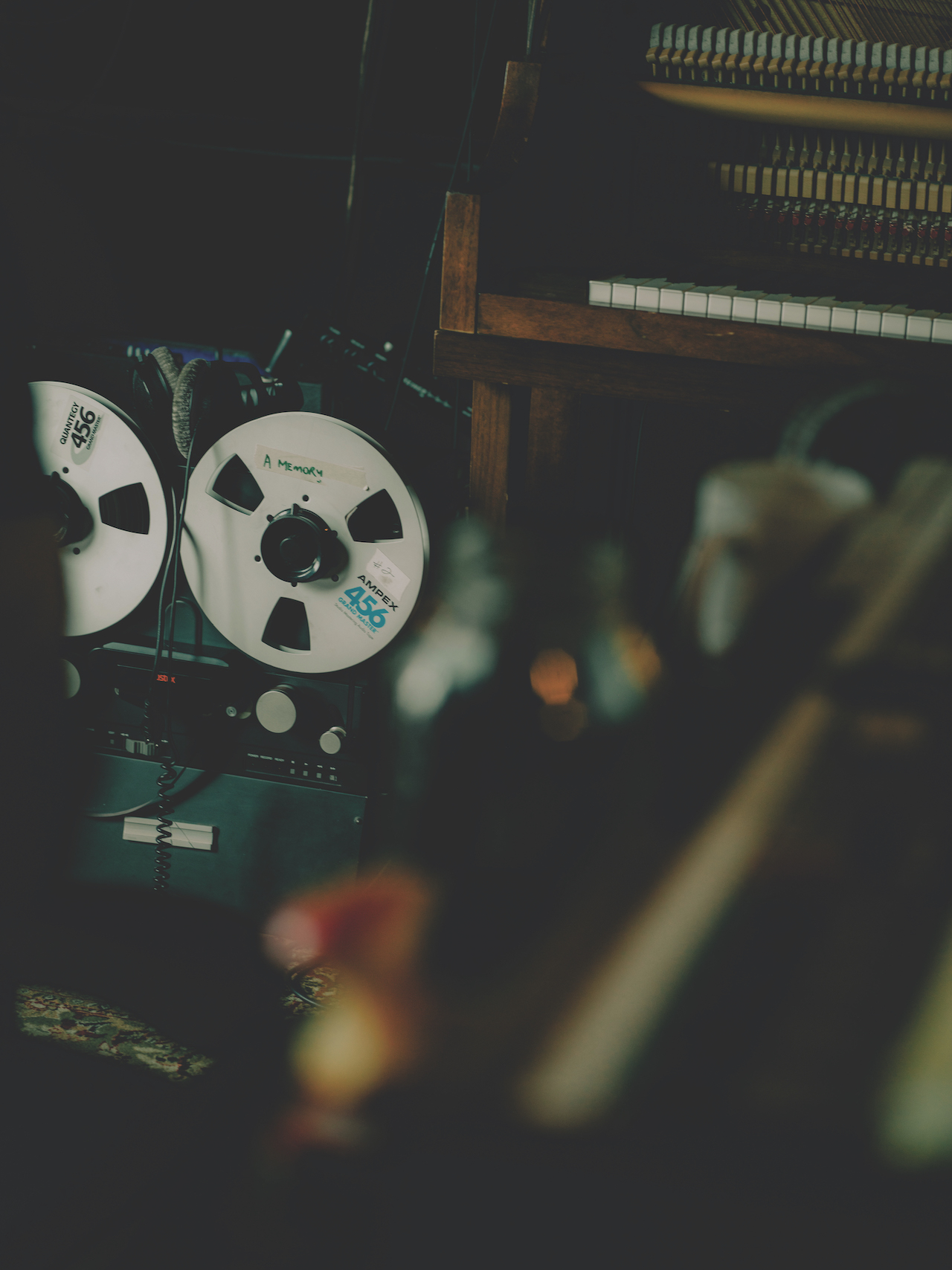
Tascam 488
“It’s a cassette 8-track from the early ‘90s. They break easily, but sometimes that’s a good thing as when the motor is a little warbly you get a free chorus effect. I use these machines for many of the demos as they let me put ideas down without overworking them as much as I do on my Pro Tools demos.”
Ojibwe shaker
“More of a drop shaker for quarter notes or half notes than a maraca -style shaker, it was made out of a flat gourd and shaped and decorated like a turtle. Every time we tried to marry it to the snare or put it on quarter notes it worked, so we just ran with it.”
Silly putty
“We’re always looking for ways to dry up and deaden stringed instruments (and drums). We’ve used a lot of foam over the years, but I’d never considered silly putty. Brian had a bunch, so we used it on the piano for tracks like G-dzilla G’dolah and Sin Imperial as well as some acoustic guitars.”
The human voice
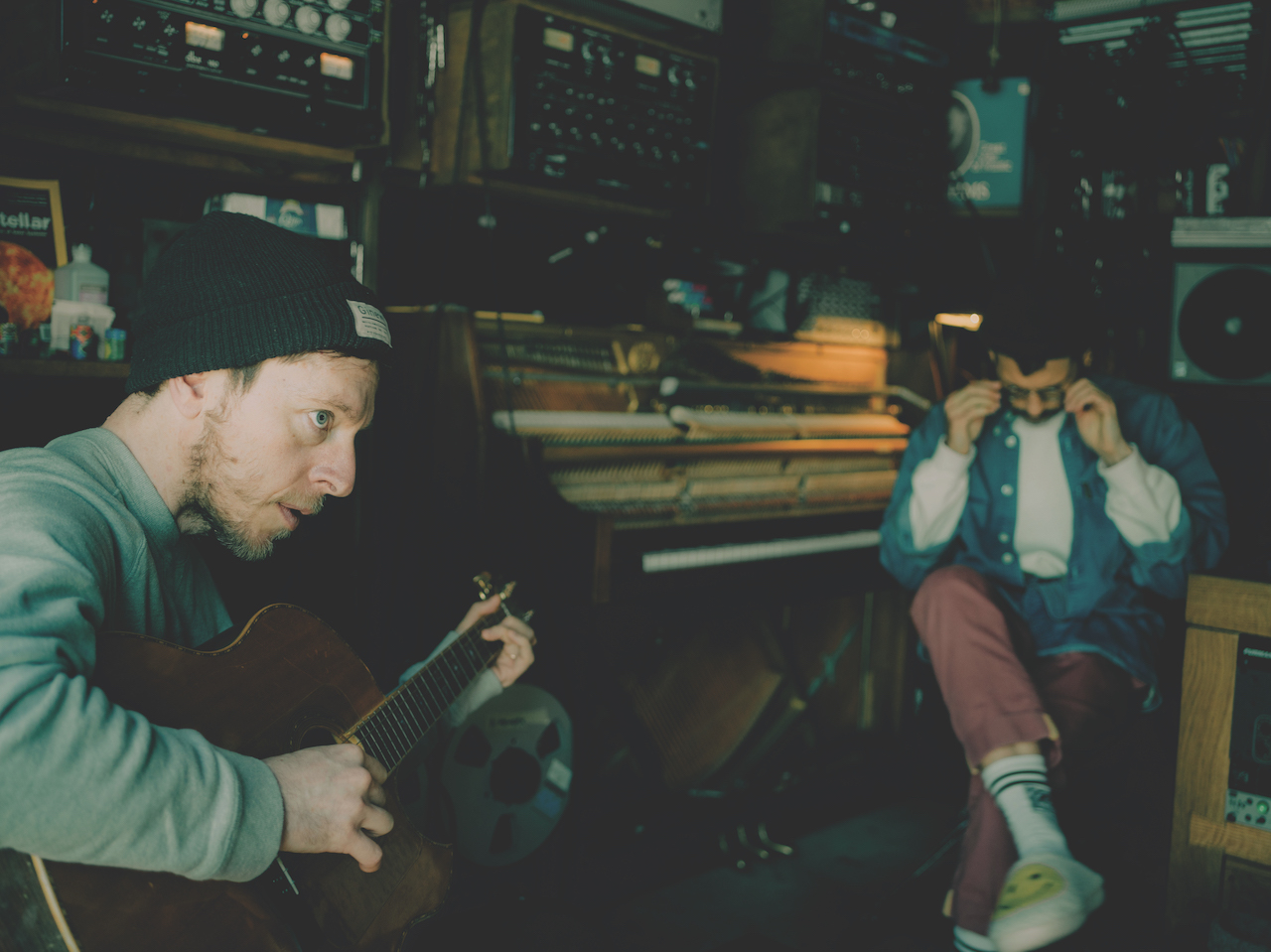
“There is no sound as special as what the human voice can create. I mostly listen to instrumental music, but as a pop songwriter (if that’s what I am) I deal in lyrics and voices. I usually sing the lead vocals, but I get a lot of help on harmonies and oohs and ahs and all of that. The background vocalists supremely enhanced this album. It’s not even funny.”
Voice memos
“I like to add a little Foley and intimate samples through an album. Some happens early in the recording phase and some not until right before the album is mastered. I feel like adding these helps humanise the music. I used a bunch of stuff off my phone; little memories of intimate moments.”





